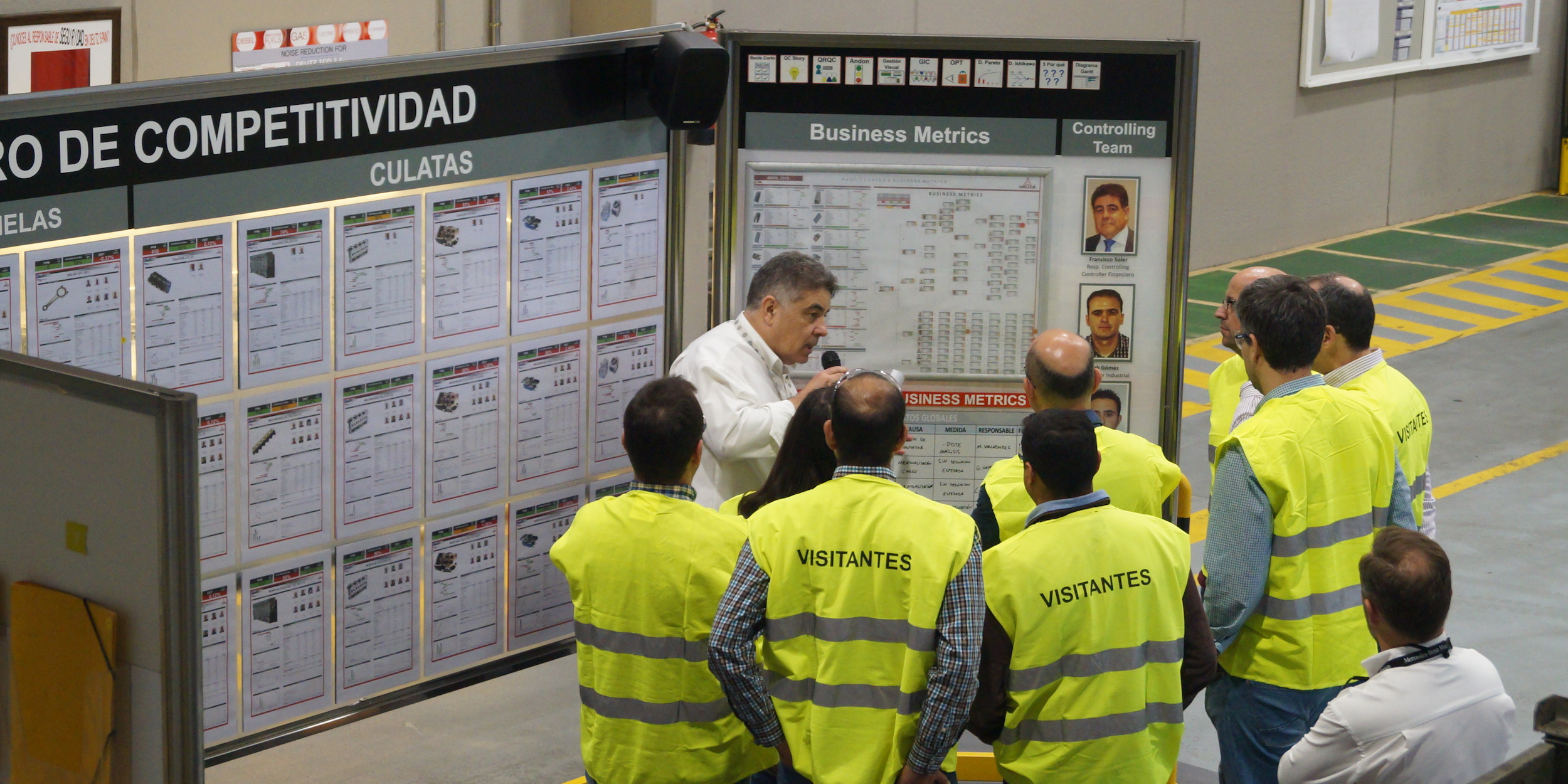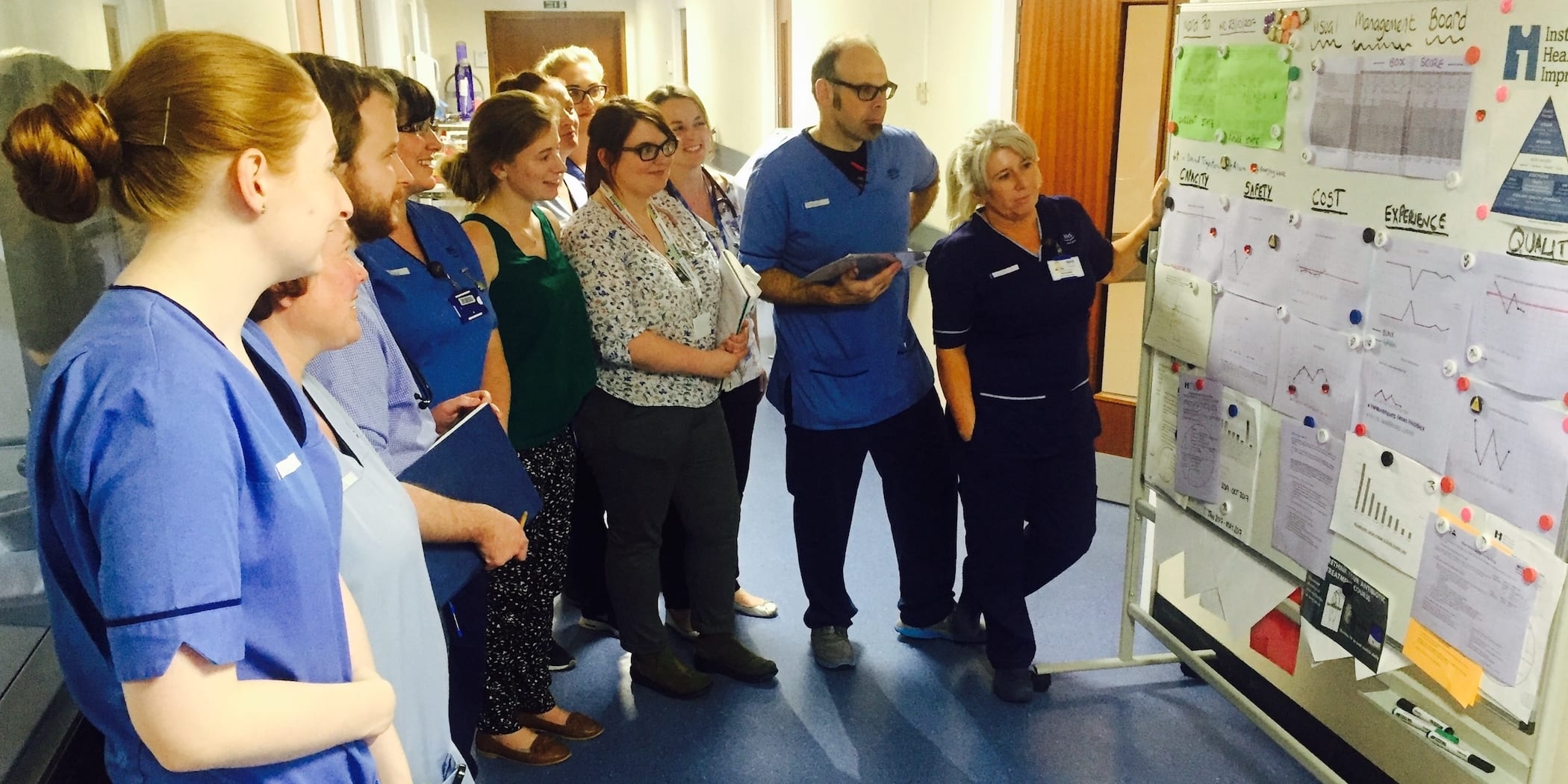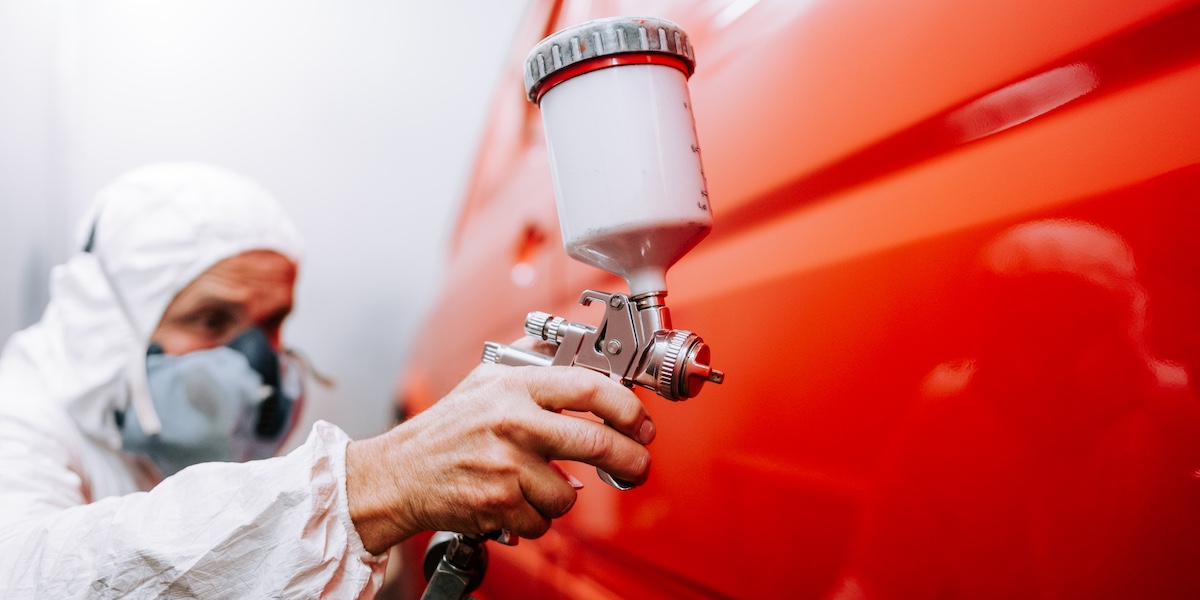
Cancelling the distance
CASE STUDY – What to do when you operate in a competitive market and are located in a remote corner of Europe, thousands of miles from your customer? One word: lean.
Words: José Ignacio Garcia Cornejo, Head of Production, Deutz Spain – Zafra, Extremadura
PART 1
Open Google Maps, and you will immediately be struck by our location: we are tucked away in the southwestern corner of Europe, with our customer located a whopping 2,500 kilometers away. Here in Zafra, we produce engine parts for the Deutz Group, which we then ship across the continent to Germany. No wonder our transportation costs amount to around €5 million a year!
From a logistical point of view, this makes no sense. So, why are our customers sticking to us? One reason is that this factory has been here for 150 years, which means that – when it comes to engines – we have very high levels of technical know-how. But there is another, more important reason: our lean transformation, which has allowed us to keep our quality high, our costs low and our customer service satisfying enough to convince the Group to keep us as their biggest supplier.
Our lean journey started, as it often does, with little kaizen events here and there. We used them to try out a few tools. At the same time, every couple of weeks we’d organize workshops teaching people about 5S, Just-in-time, Jidoka, and so on. We soon decided to run a pilot project in the assembly area. That was a very intense year, during which we introduced Kanban and milk runs, moved the machines, and completely transformed the assembly work. That’s when we really turned our plant into a lean plant. When the whole site started to understand what lean is about, we introduced the Deutz Production System – inspired by TPS of course but customized to our needs.
In 2014-2015, we started working with Renault-Nissan Consulting. That’s when we really got introduced to the idea of a lean transformation and the need to involve management and take change outside of the production area. We drew value stream maps, creating a link between our gemba and the rest of the company. Critically, we started to look into processes, as opposed to departments – we even nominated value stream managers. “Flow” became a common word as we strived to get a global vision of the process.
After that, we started working with the Instituto Lean Management – which ultimately allowed us to reach everyone across the business. As we invited people to attend the Lean Practitioner Program and encouraged them to run improvement projects, we realized that a transformation can only succeeds if it involves everyone. I also say that this last phase is when we really reached the shop floor.
We may have been at it for years, but it still feels like we only just started. Perhaps that’s because we put a lot of emphasis on reinforcing the fundamentals. Always. (Even Toyota is going “back to basics” after all!) The reason for this is that you can deploy your strategy well, but still have your feet in the mud – so to speak. We know that truly understanding lean principles and techniques means constantly practice PDCA in our learning.
The Deutz Production System itself is a way of evaluating the level of implementation of the standards and techniques to ensure our results are sustainable. It’s a manual we rely upon to check our level of “lean health”: we know that, whenever we fail to comply, the answer is to be found in the gemba. That’s where lean can be seen in action. Our own “going back to basics” means strengthening our standards and our use of the lean principles, something the value stream manager is tasked with.
What’s very interesting about lean is that you can be fully engaged in it, and still miss the big picture. Take us, for example. I feel like we are pretty advanced in our application of the lean principles and tools, but at the moment we are still missing the elephant in the room: we have too much material in the factory, and that to me is not lean. A healthy plant needs to have as little material lying around as possible; we have 13 days of WIP for one of our products, and 10 days of finished goods. We got lost in the details and forgot the fundamentals! So, now we have to clean up the house again.
Don’t get me wrong: everybody at Deutz Spain can recognize waste and knows how to tackle it, but it’s too easy to get caught up in the every-day work and miss the big-picture view you need to take a look at your plant and see if it’s losing its lean-ness. Focusing too much on the technical has its drawbacks.
This is one of the many reasons constant people development is so important for us. People are the main pillar in our transformation, because they are those who enable continuous improvement and change to take root. We are offering them training on a regular basis (we are currently exploring Kata Coaching, too), as well as opportunities to improve their work.
It is something of a lean curse to look at your plant and only see the negative. Within the Deutz Group, we are actually a model: our German HQ sends entire teams to see us here in Zafra, to understand lean thinking and see how we work. The rest of the group never experienced the same sense of urgency as us, for the reasons I explained at the beginning of the article (we are far away from our client and the economy of Extremadura can’t really be compared to that of Germany). That’s why it’s often said lean works best in scenarios where there aren’t a lot of resources.
To ensure we are as aligned as we can possible be to group strategy (which is critical if we are to survive), we have been relying on hoshin kanri. This is a great way to visualize the impact our work has on company goals and to improve our processes based on what the KPIs are telling us.
For hoshin to work, however, we need a strong daily management system in place. We have perfected this over the years, which means that, as Head of Production, I only deal with risks these days. The rest is a prerogative of the teams on the floor. KPIs immediately tell me how we are doing, but it is not my role to butt in and tell people what to do when we have a problem (and yes, it is hard to resist that temptation sometimes). Instead, I focus on the risks we run as a Department. It’s the beauty of lean: by empowering people to tackle problems in the process, it allows leadership to focus on big problems impacting our strategic goals.
Speaking of strategic decisions, one of the things I am focusing on right now is the creation of the Deutz Maintenance System (DMS) – this manual is defining responsibilities and outlining maintenance techniques. It will teach people how to do maintenance the lean way. This was long overdue, because maintenance is quite a big cost for us and we simply have to find a way to predict situations that may arise with our machinery. If we do, we will save loads!
Any problem, piece of inventory, or interruption in the flow represents money that we need elsewhere. I am convinced that, for Deutz Spain, lean thinking is not a nice-to-have; it’s a matter of survival. It might be uncomfortable and hard to do, but it’s necessary. To remain competitive, we need to continue to offer our customer the lowest possible price – which means that we need to lower of fixed costs (there is simply no way around it). When even your raw materials come from Germany, it is not easy to convince your German customer that it makes sense for them to buy components from a small company located on the other side of the continent.
The only way I know to prove to our customers that we are their best option is lean thinking. Lean give us the flexibility we need to provide the best possible service to them, always give them what they need, and keep them satisfied. We are working with it and fighting every day to virtually cancel the 2,500 separating us from our customers.
PART 2 - OUR CENTER OF COMPETITIVENESS
Words: Francisco Soler Benito, Controlling Manager, Deutz Spain - Zafra, Extremadura
Deutz Spain is like an oasis in the desert. As the most important manufacturer in Extremadura, we represent a big resource for the local economy. More than six hundred families directly depend on us. This makes our competitiveness more than just a business goal; it’s a moral imperative.
In the past, our Control function (the one that sets standards, monitors the performance of our business and takes corrective action when necessary) mainly worked with reports, whereas now we have developed a way to truly manage the flow of information across the business.
Things changed in 2014-2015, when we had a big crisis in Germany. In response to it, we ran a brainstorming session to try and figure out how to lower our fixed costs. In the short and middle term, we were able to save €1.8 million. That was the beginning of our Center of Competitiveness.
This is place in which we deal with waste in Deutz Spain. A meeting takes place here every Thursday at 1 PM. At the beginning, everyone responsible for cost was expected to participate (we were always between 30 and 40 people), but since October 2017 we only call those who are experiencing deviation to show up and report on the problem. We also have an end-of-month meeting to report on monthly deviation.
The idea behind the Center of Competitiveness is to tackle problems as soon as they appear. (It is useless to address deviation months after it occurs.) With this in mind, we have put in place an automated alert system: whenever the system detects a deviation – for instance, productivity is down more than 5% – it produces and immediately sends an alert to the responsible manager, who knows right away he will have to show up at the Thursday meeting with an A3. The meeting is also the time when we look at the countermeasures we have implemented and determine whether or not they are working.
The biggest benefit of the Center of Competitiveness has been the creation of a culture of waste elimination, and the spread of the idea that to tackle waste rapidly and effectively we need to work together. It’s also given us a way to focus our conversations on the most relevant issues and a common language to discuss them.
Learn about Deutz Spain's lean HR strategy here.
THE AUTHORS


Read more


INTERVIEW – The CEO of a Scottish health board takes us through the organization’s long lean journey, reminding us that allowing people to take the initiative often leads to the most impressive discoveries.


FEATURE – The author shares his thoughts about the thinking that informs Uri Levine’s book and explains why this is perfectly align with a lean mindset.


FEATURE – Collaboration with suppliers, rather than a merely transactional relationship, has to power to transform a company’s operations, fostering innovation and building resilience.


INTERVIEW - Are you a manager who needs to brush up on lean but has little time to do it? A new book by Cécile Roche comes to the rescue: A Little Lean Guide for the Use of Managers.

